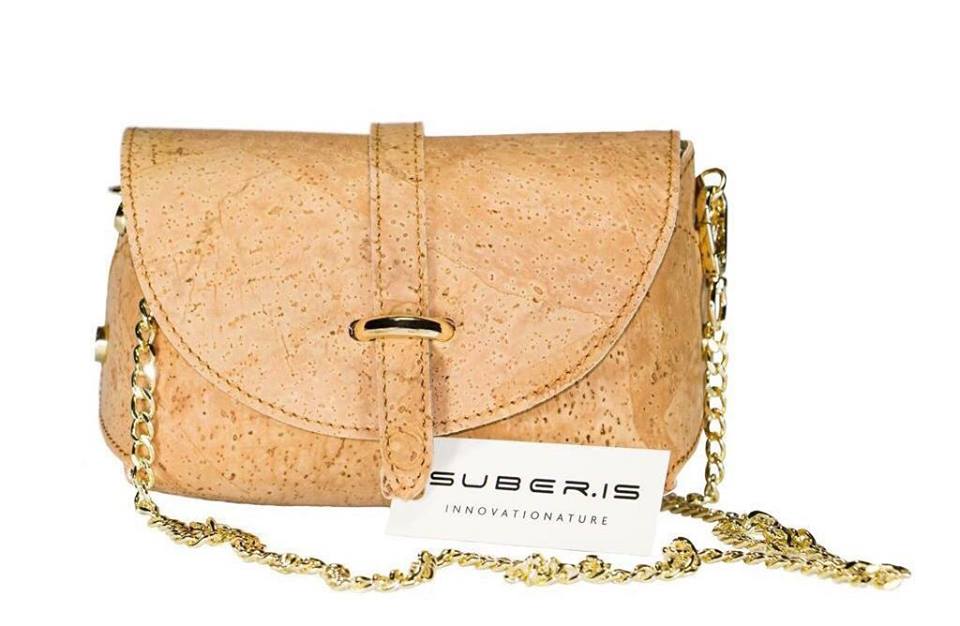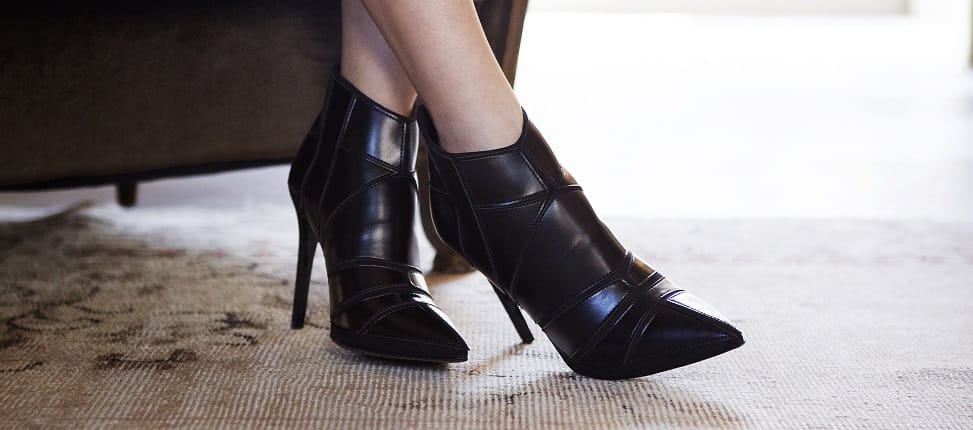Green is not just the new color trend on the runways of Milan, it represents a bold message of eco-sustainable fashion. Fashion houses are making conscientious choices in selecting the materials and textiles they use. This new movement of mindful design is opening doors and opportunities for small, innovative companies throughout Italy looking to offer solutions to forward-thinking designers and consumers.
They say that the 1990s was the beginning of a new era, when people in the industry started questioning the impact of fashion manufacturing on the environment. At the time, I was a young, naïve model who, admittedly, never really gave much thought to it. I made my daily bread by strutting down the runway, clad head to toe in sequined gowns, dragging fur stoles behind me. I don’t classify myself as an animal activist and I am not a vegan, but I do have the highest regard for the preservation of our planet and the lives that live on it. I think awareness towards the who, what, and how an item of clothing is made is growing as the global conversation about our environment spreads.
Today, as a mature and informed consumer, I favor items from companies that are making efforts to do something about our ever-changing and unpredictable future.
Here are some fashion companies in Italy that have found unique and innovative ideas that both help the environment and offer quality made in Italy products.
Suberis
Suberis is an innovative material made from eco-friendly cork. This new material is used for everything from wall coverings, to shoes, to bags. High-end designers are using it for new concepts and designs.
As a young girl in Sardinia, Anna Grindi was always fascinated by fabrics. She would sneak out of school and go to the local tailor shop where she would learn the art of weaving and dress making. At 18 years old, she opened her own atelier, specializing in crafting wedding gowns and innovative delicate fabrics. In her early twenties, she married a prominent cork-manufacturer. Watching the long sheets of pressed cork come out of the factory got her wheels spinning. One night while everyone was sleeping, she got out a crockpot and mixed up a concoction that would smooth and render the stiff material malleable. After refining the secret formula and patenting it, she brought some samples of the soft buckskin-like material to a fashion fair in Milan, and the rest is history.
Suberis is used to make everything from bags, to rain jackets, to evening gowns. It is 100% natural and environmentally friendly, hypoallergenic, antibacterial, waterproof, fireproof, and resistant to wear and corrosion. It is stain and crease resistant and easily washable. It is even used as a thermal and acoustic insulation for home interiors.
Suberis has saved the cork oak (Quercus Suber), a tree that was close to being classified as endangered. New trees are being planted, and the estimated loss of 75% has significantly declined. Although the main retail company is now based in Switzerland, Suberis is still made in Italy.
www.suberis.ch
Nemanti Milano
Nemanti Milano is a shoe company that produces quality, crafted shoes from eco-friendly materials such as waxed linen, ethical wood, and Alcantara. Their innovative Pellemela, which means "apple leather", is a new faux leather made from apple cores discarded by agricultural manufacturing. Pellemela is durable, allergy-free, and vegan. Certified and classified a PETA Approved Vegan brand, and regarded with the highest level of ethical rating by LAV with the Animal Free Rating VVV +, which means the product is made without animal derivatives, Nemanti Milano sets a high standard for sustainable fashion.
In 2017, Opificio V was rebranded as Nemanti Milano, remaining a company holding true to its values of respecting the environment and animals by making vegan, cruelty-free materials and shoes.
Trentino Alto Adige is Italy’s northern most region, and the vast countryside is blanketed in apple orchards. Alberto Volcan, an engineer from Altino, thought that there was a better use for the 500,000 tons of apple skins and cores discarded every year. He first developed paper goods such as wrapping paper, paper towels, and toilet paper. He then developed Pellemela, with 76% apple flour, dried peels, and cores, mixed with water and natural paste. The secret formula is then compacted into a machine designed by Anzio Storci, the world's leading pasta machine manufacturer.
Nemanti Milano makes shoes for both men and women ranging from casual daily wear to evening elegance.
www.nemanti.com
Orange Fiber
Orange Fiber is a company that weaves sustainable fabrics from non-edible citrus juice by-products. The yarn is a silk-like cellulose that can be blended with other materials. When used in its purest form, the result is a 100% citrus textile; soft, silky, and lightweight.
It started as an idea proposed as a university thesis by Adriana Santanocito while studying textile design at AFOL Moda design school in Milan. Santanocito, who was from Catania, a region rich with orange groves, was aware of the high volume of waste produced by the juice industry. She discovered a method of extracting cellulose from citrus juice by-products and transforming them into a refined high-grade fabric setting a new standard in fashion and luxury. She shared her idea with Enrica Arena, who is partner and head of marketing and communications.
Fashion Tech Lab is the parent company behind this innovative technology making sustainable advances in the fashion industry. With Orange Fiber, they aim to improve the social and environmental footprint of this industry. Driven by a vision of suitability and quality, Orange Fiber and Fashion Tech Lab are working to make our planet healthier.
Salvatore Ferragamo is the first fashion house to employ Orange Fiber fabrics for a Mediterranean inspired ready-to-wear collection with prints designed by Mario Trimarchi.
www.orangefiber.it
Sustainable fashion is steadily transforming from a movement to the new industry standard. I think we will see established companies change their old ways and in the near future see new companies with exciting ideas and innovations.
About the author: Celia Abernethy is a lifestyle and travel writer in Milan, Italy. If she’s not on a train or plane, she’s at the quiet shores of Lake Como. She shares her stories and discoveries at www.milanostyle.com and can be found on Twitter @CeliaAbernethy.








